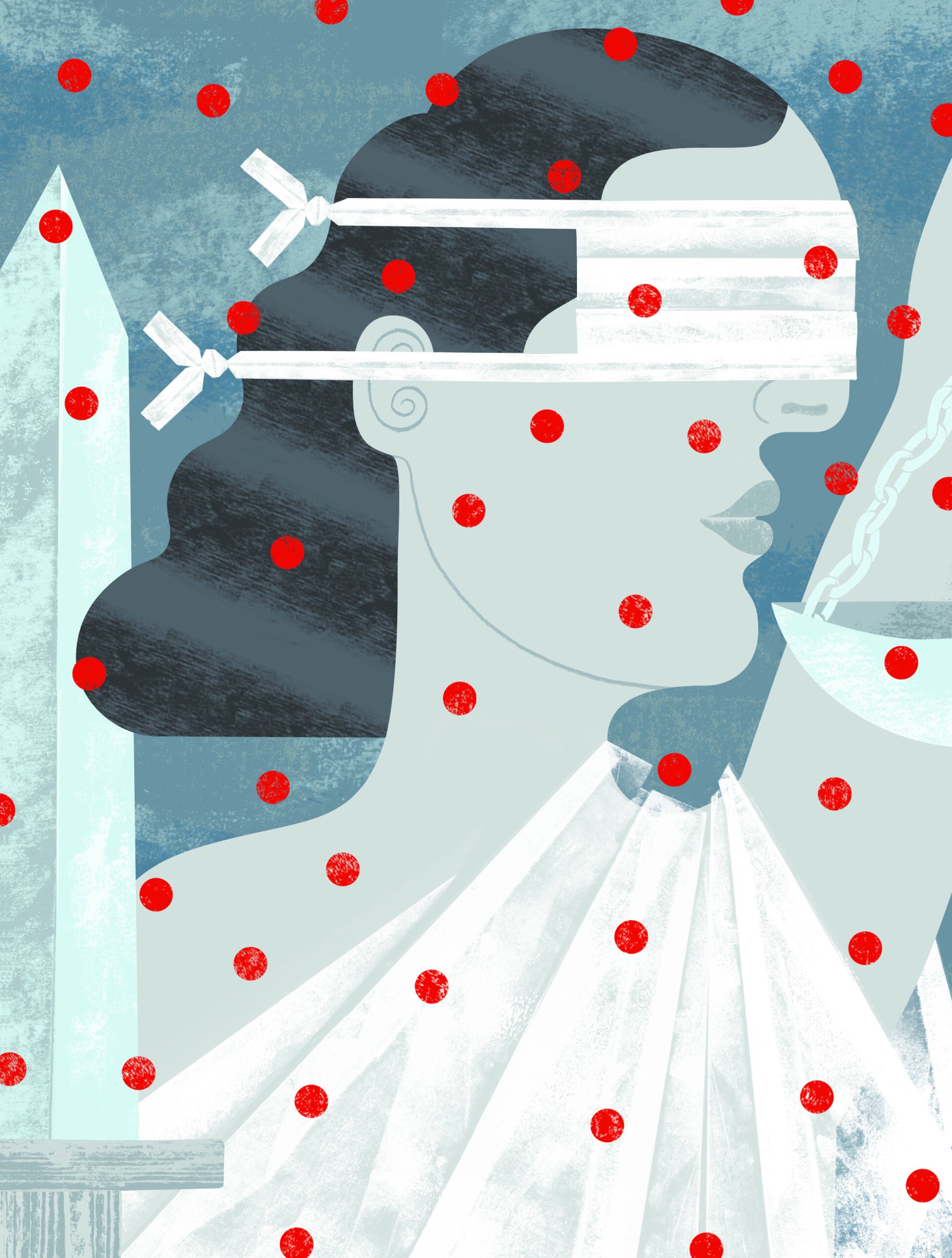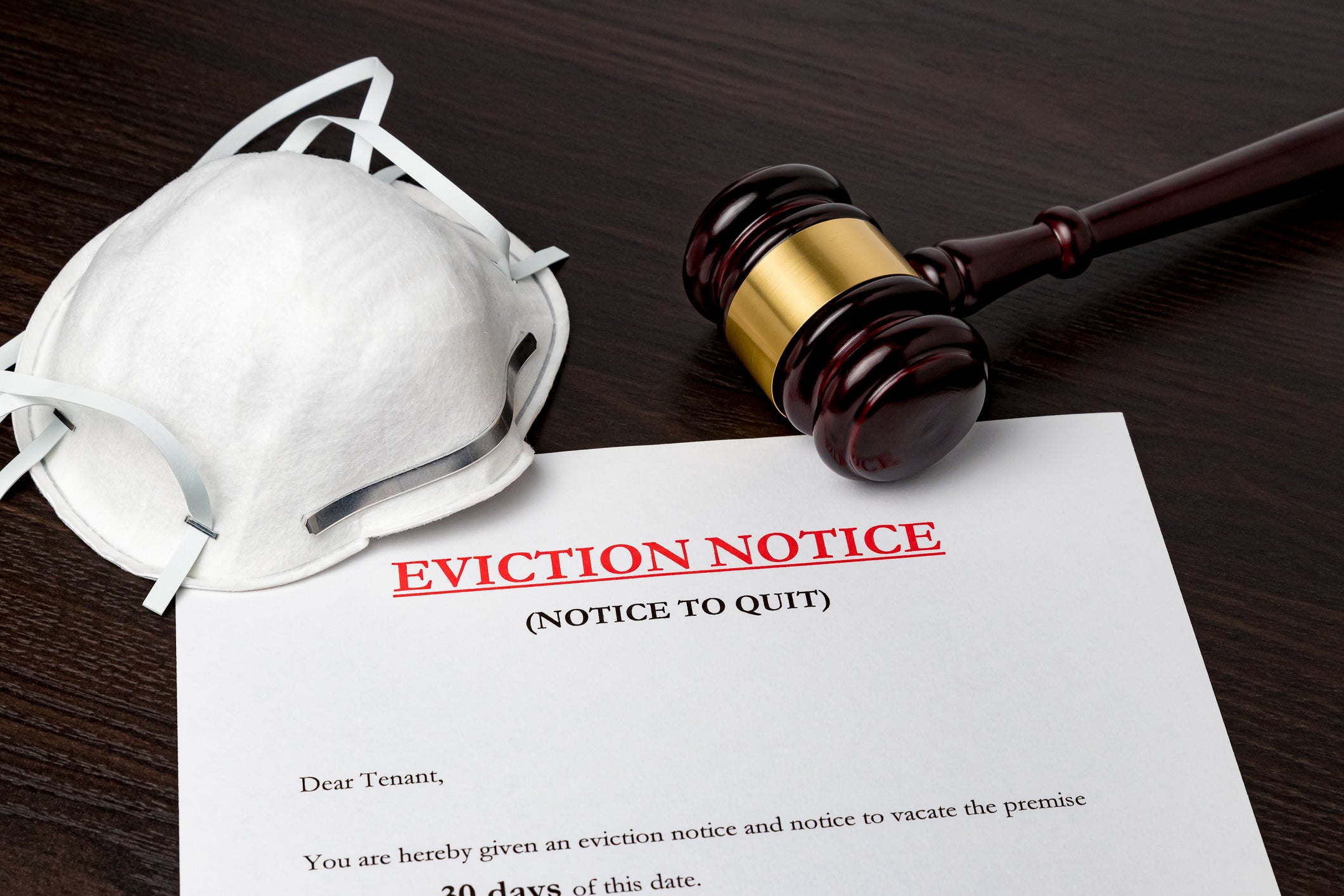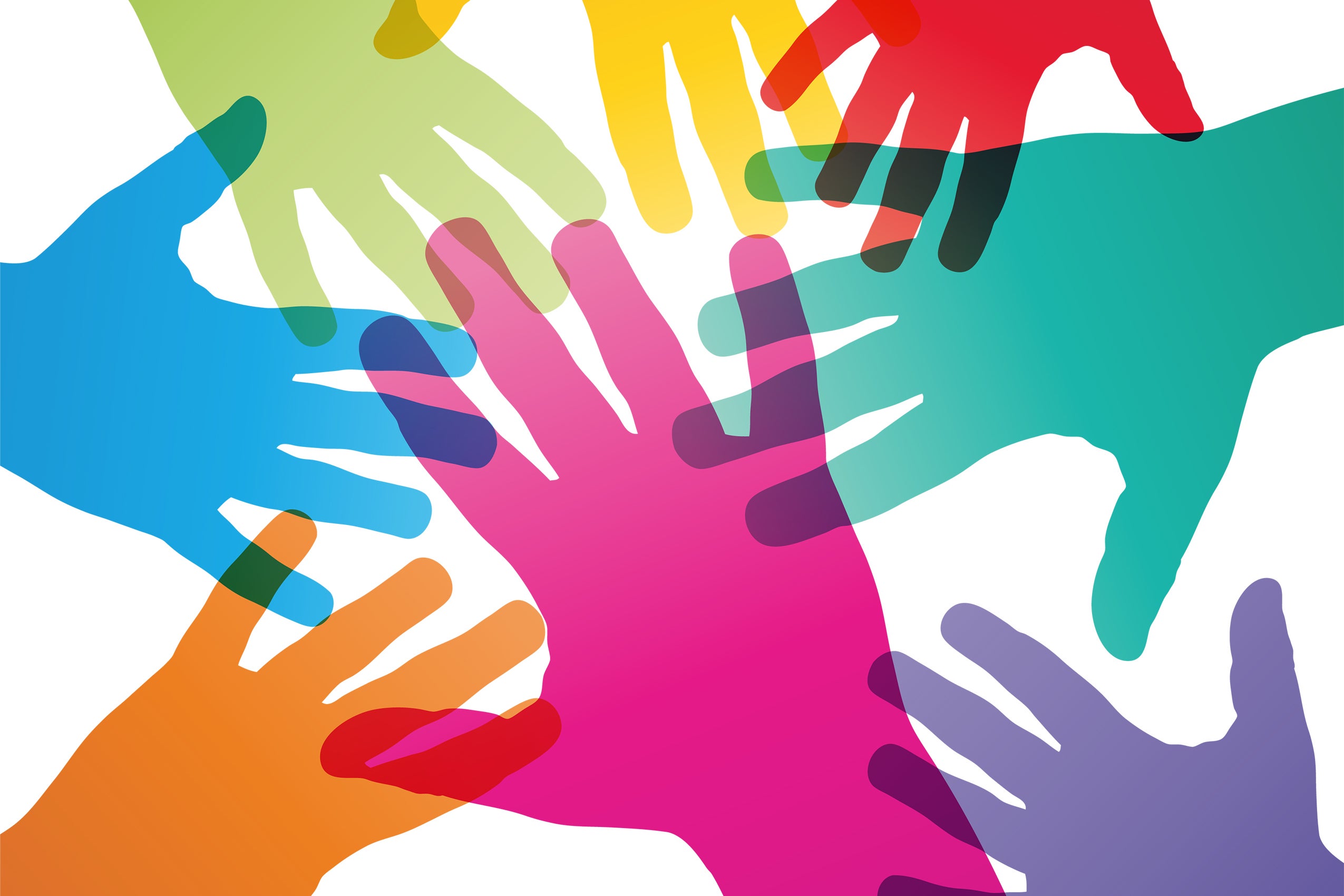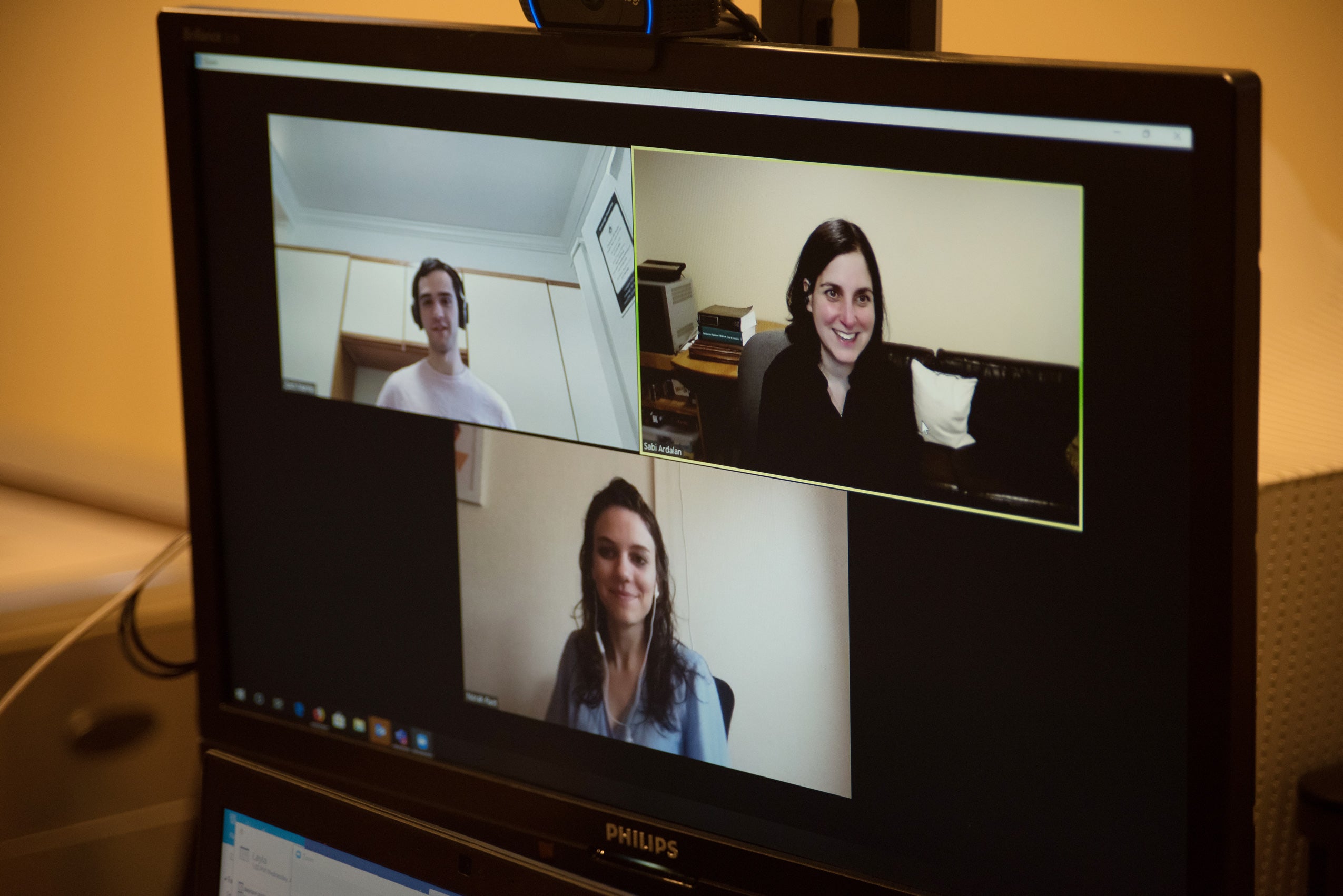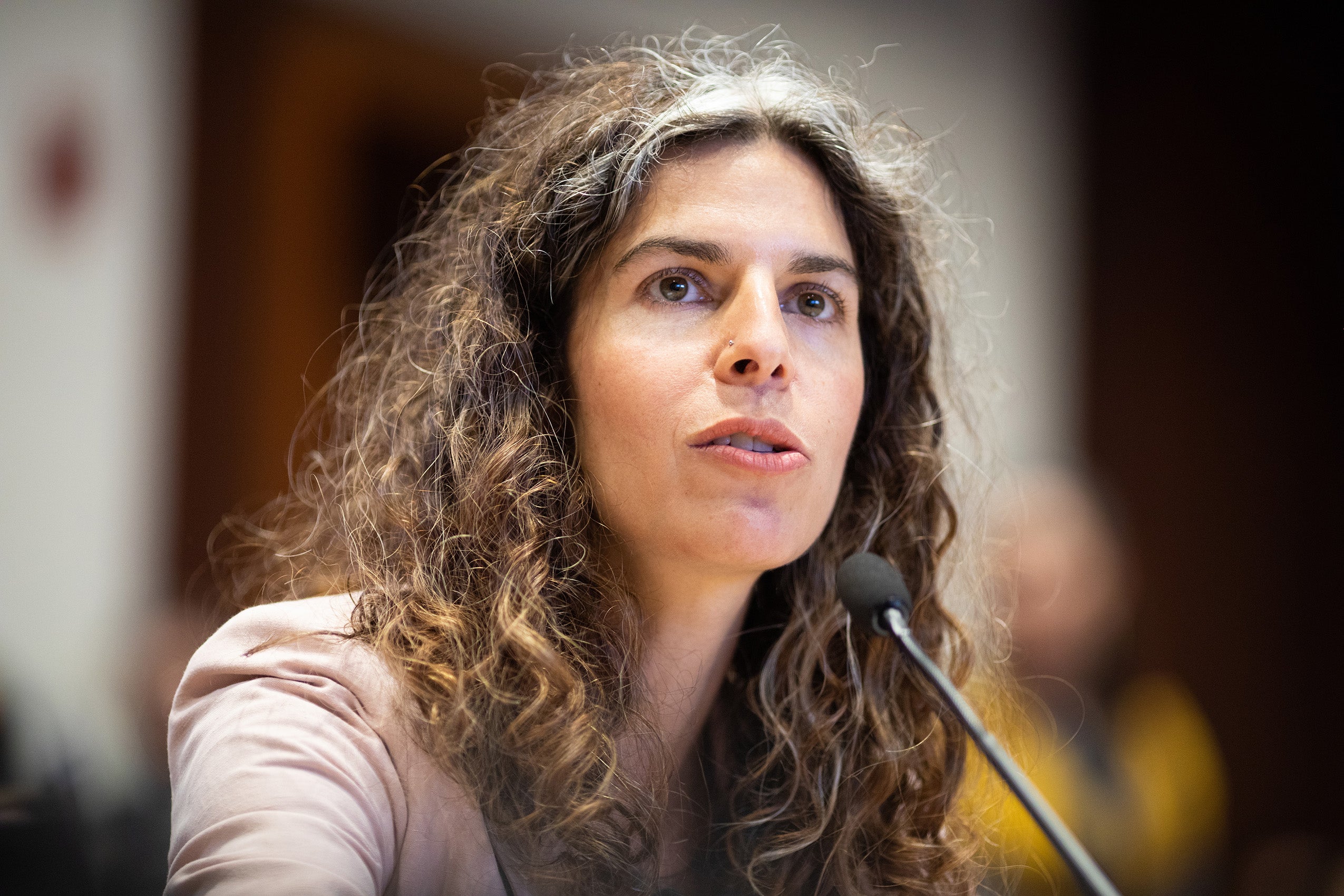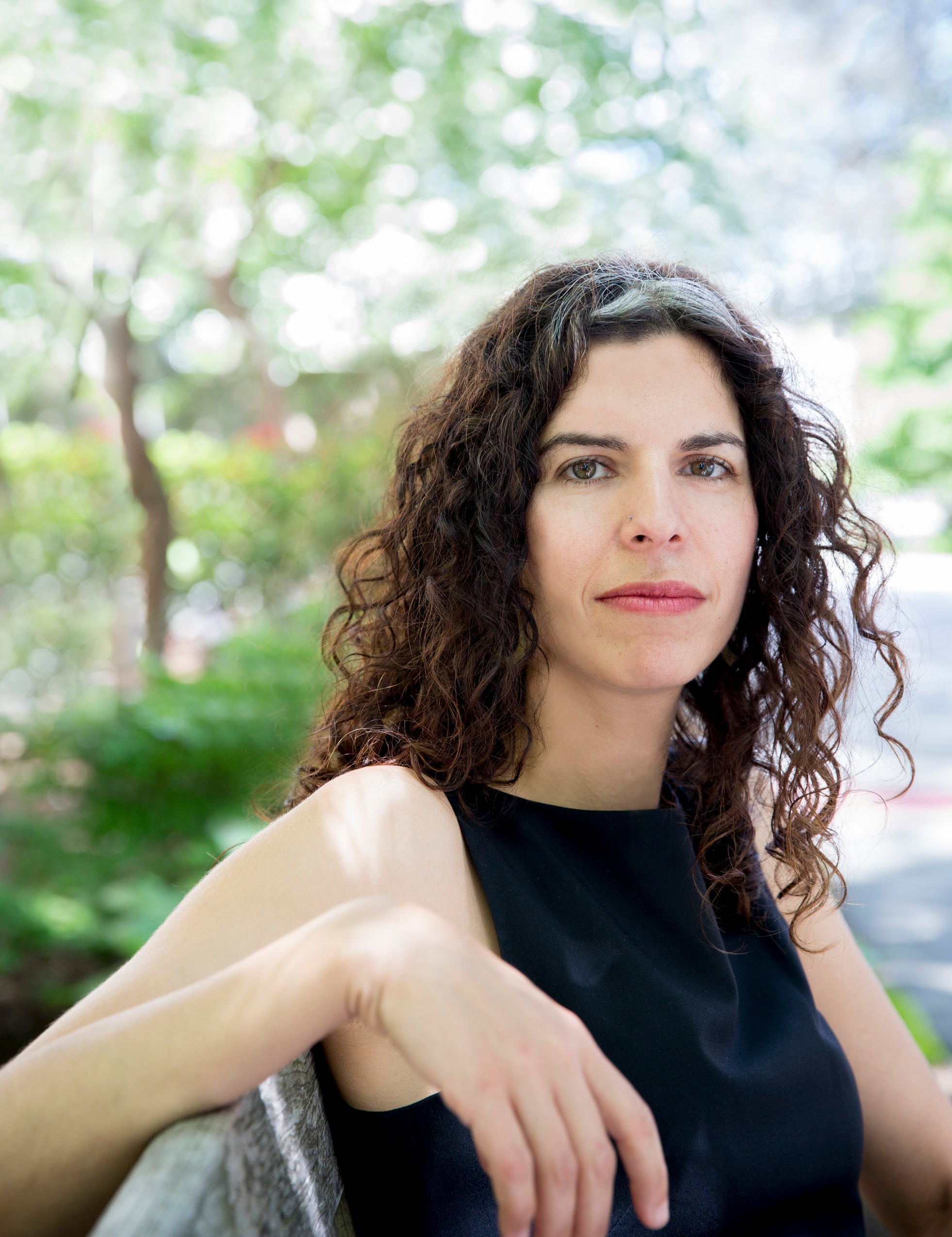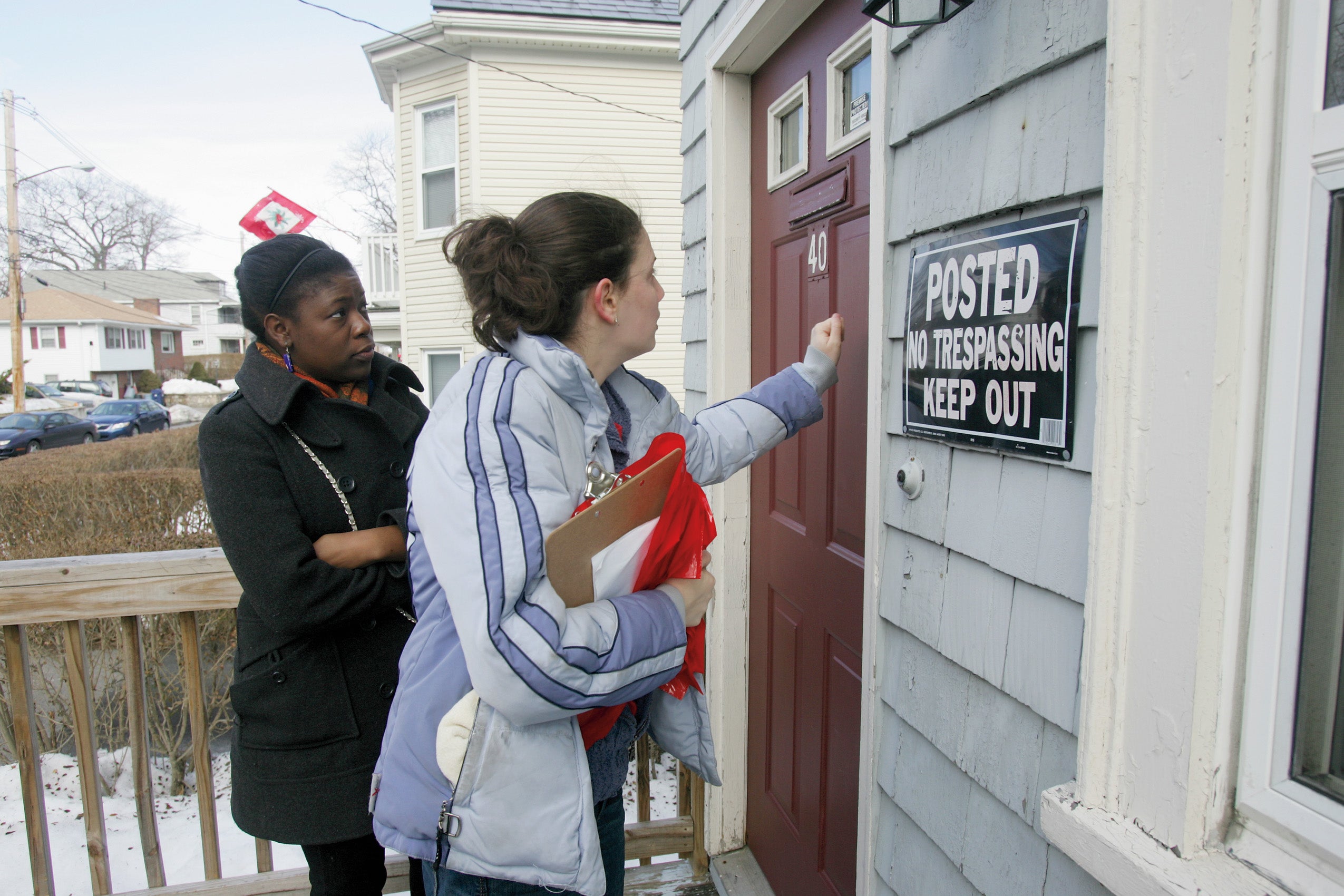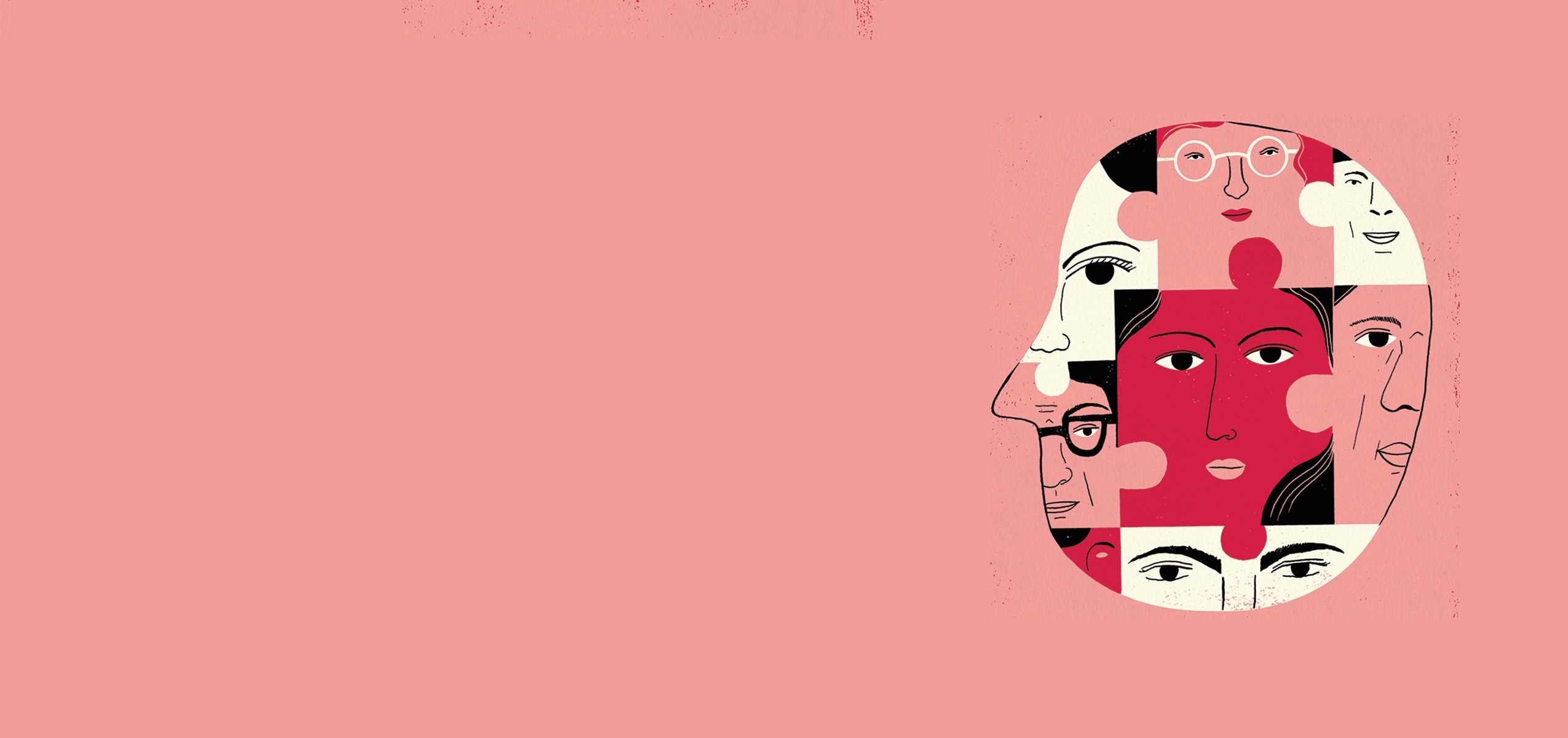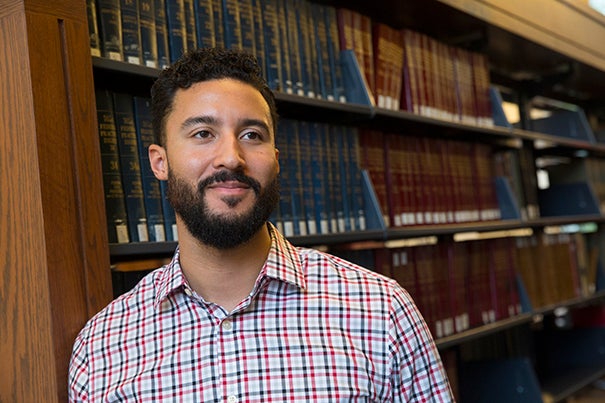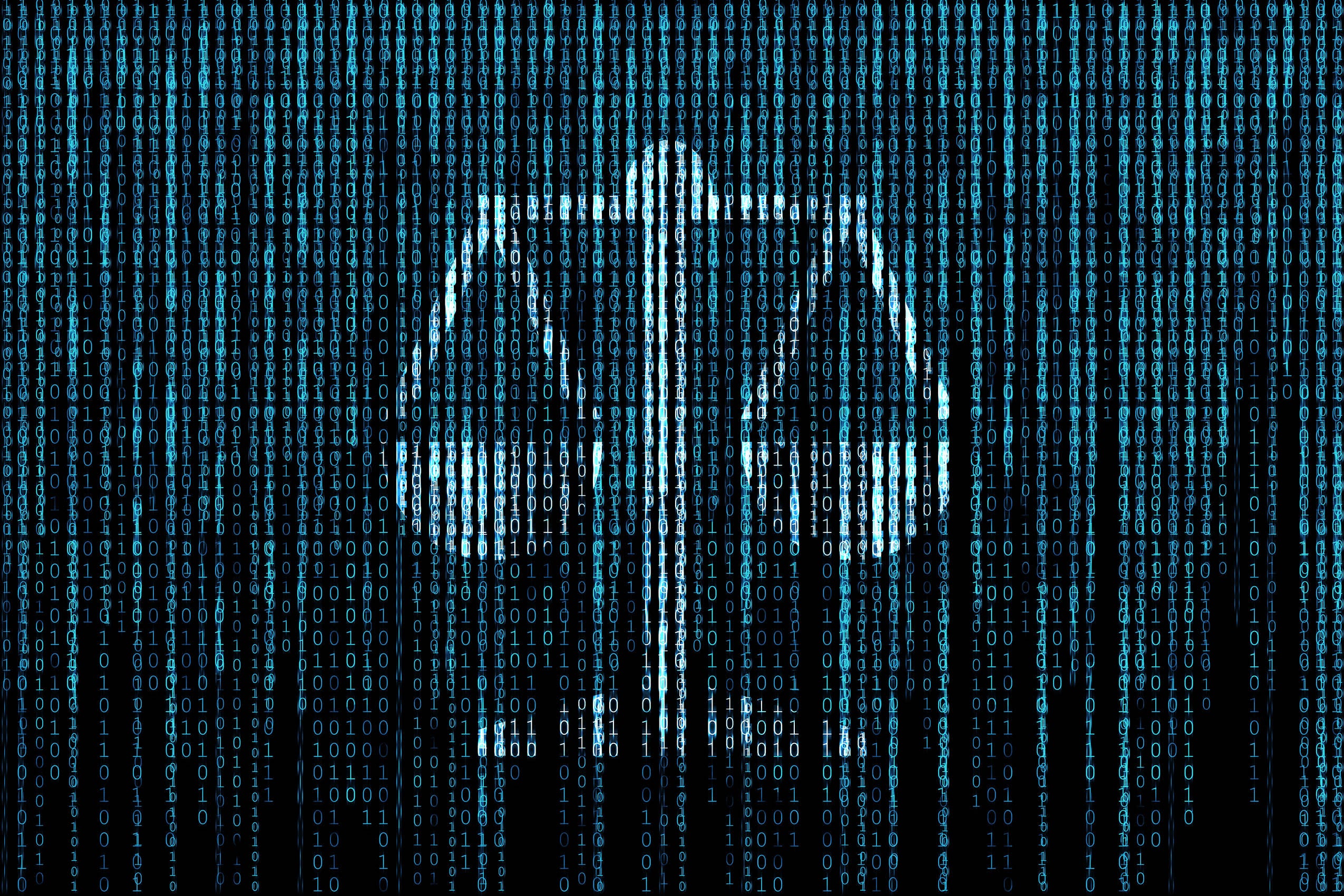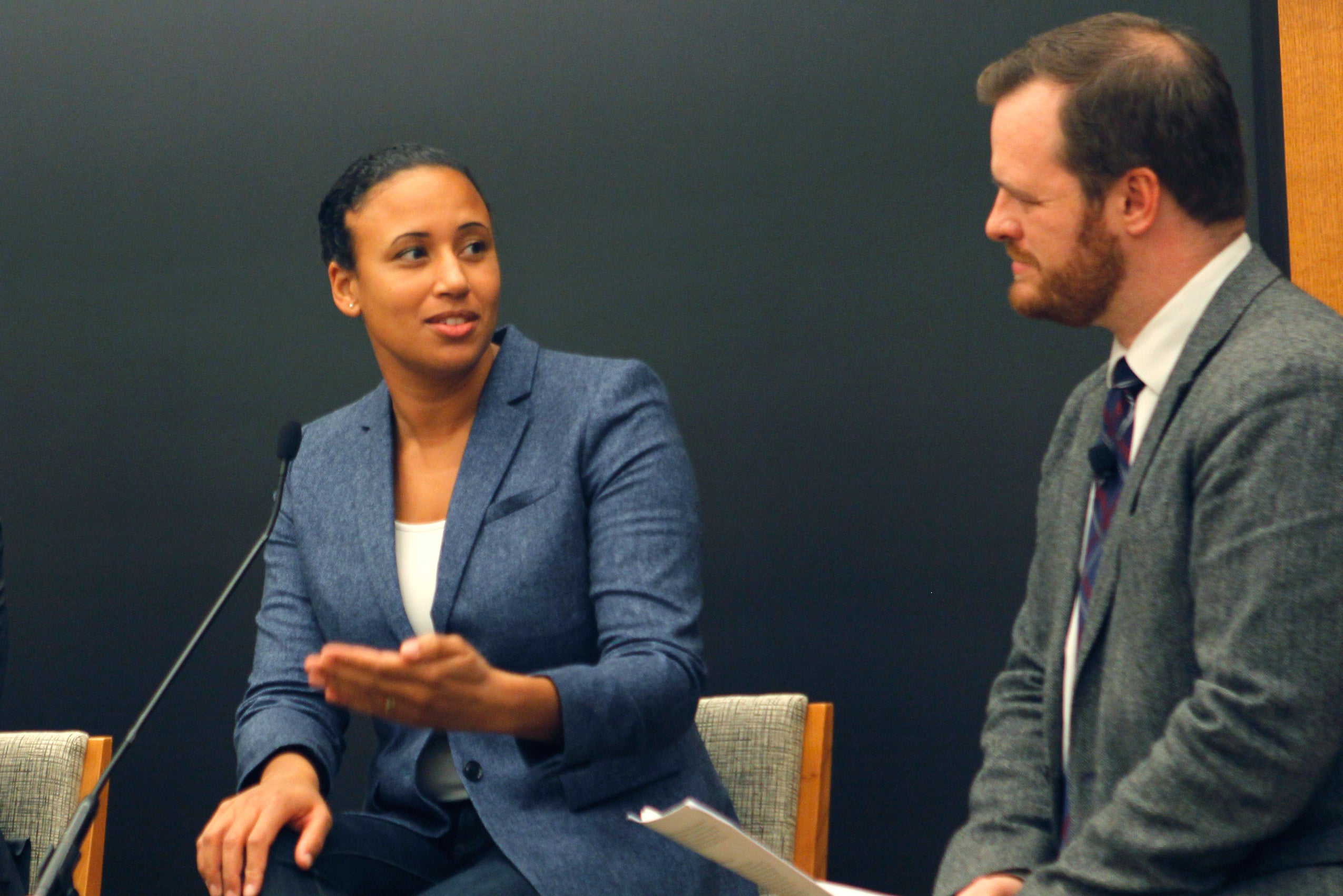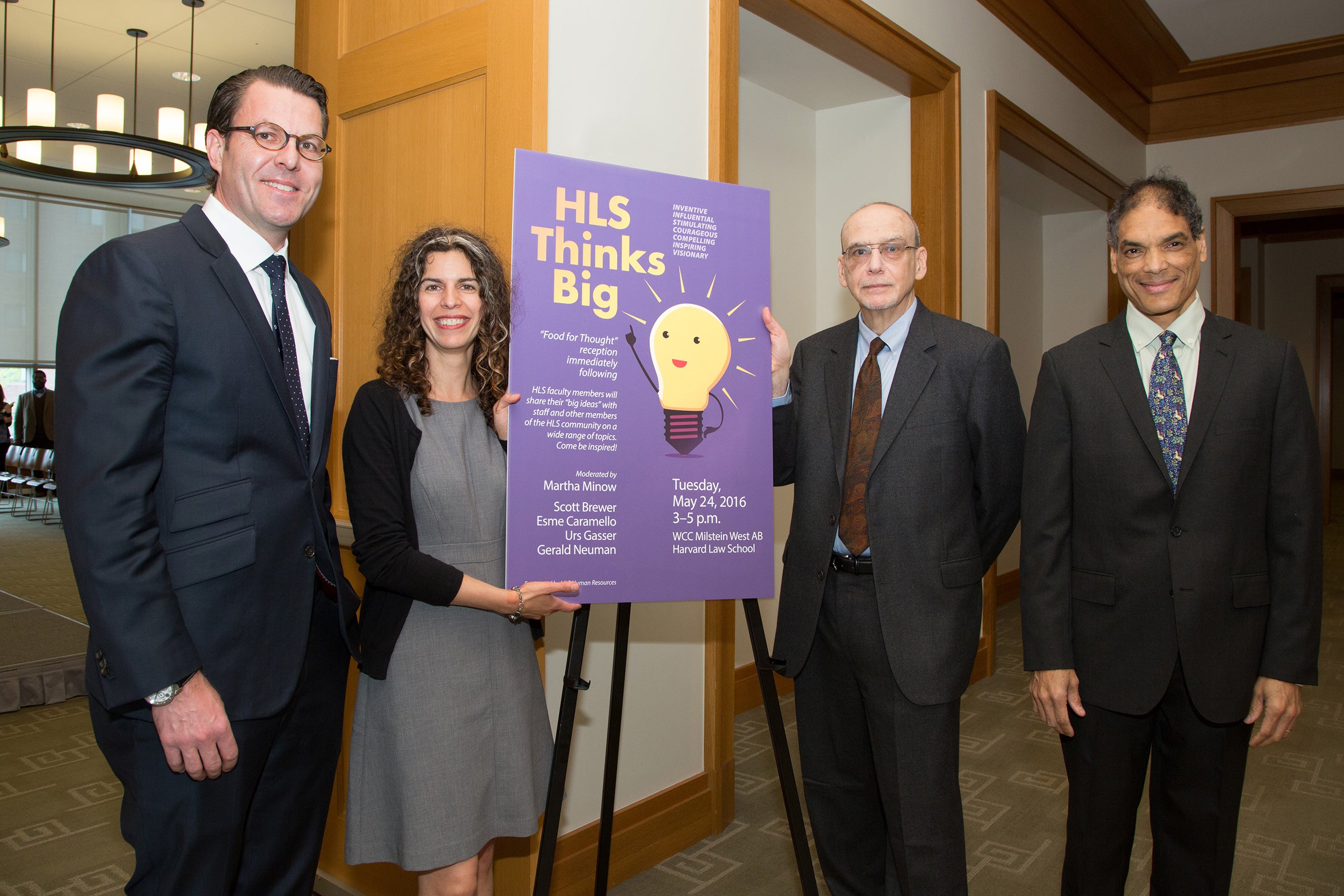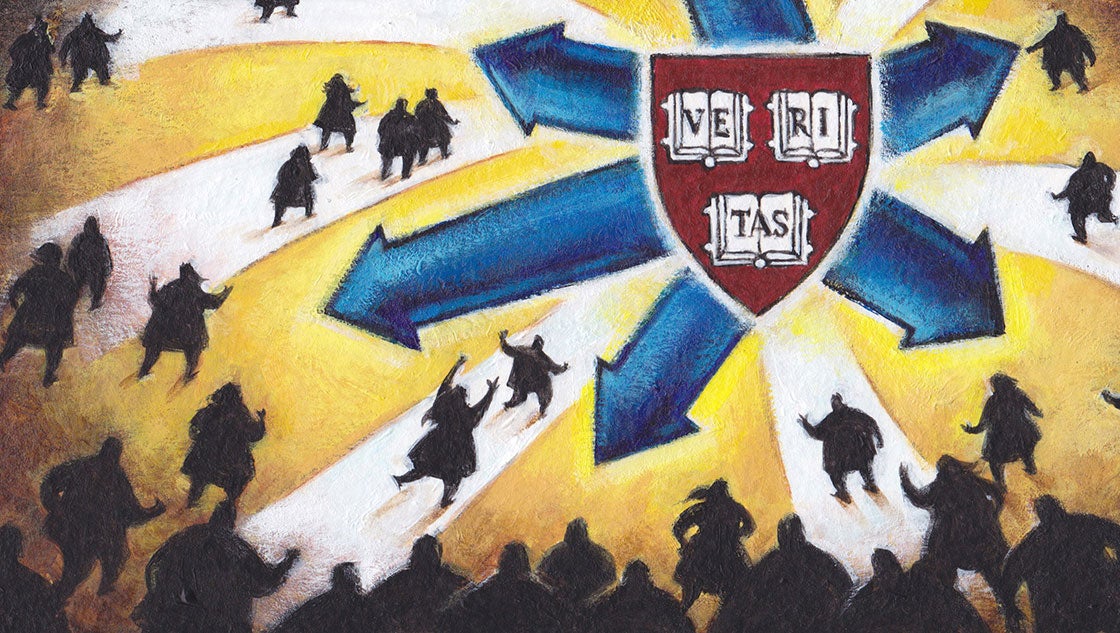People
Esme Caramello
-
Practicing Law in the Wake of a Pandemic
July 15, 2022
‘Everyone is struggling to understand what this new world is going to look like’
-
Harvard Law School clinics redouble efforts to assist after eviction moratorium’s end
September 10, 2021
As many people are left wondering what will happen with the end of the Centers for Disease Control and Prevention’s pandemic-related moratorium on evictions, Harvard Law School clinics and programs have reaffirmed their commitment to helping individuals and families navigate the housing system and their legal options.
-
How can law students help in the midst of COVID-19?
April 29, 2020
Lee Mestre helped to coordinate Harvard Law School student aid efforts after natural disasters in New Orleans and Puerto Rico. Now she's using that experience to help law students support people in Massachusetts affected by the COVID-19 crisis.
-
For the Clinical Program at Harvard Law School, the past weeks of the COVID-19 pandemic have been a time to mobilize. As the clinics have moved to working remotely, their work has continued with new urgency.
-
JET-Powered Learning
August 21, 2019
1L January Experiential Term courses focus on skills-building, collaboration and self-reflection
-
Harvard Law School clinicians testify on legislation supporting tenants in eviction cases
July 25, 2019
Four Harvard Law School clinicians—Esme Caramello, Patricia Whiting and Nicole Summers from the Harvard Legal Aid Bureau (HLAB) and Shelley Barron from the Tenant Advocacy Project (TAP)—presented testimony before the Massachusetts Joint Committee on the Judiciary on a series of housing bills aimed at tenants facing eviction.
-
Massachusetts Lawyers Weekly
December 14, 2018
The [Massachusetts] Supreme Judicial Court has announced the appointment of eight new members to the Access to Justice Commission. They are: H. Esme Caramello of Harvard Law School; Northeastern Housing Court First Justice Fairlie A. Dalton; Sandra M. Gant of the Committee for Public Counsel Services; Richard Johnston of the Attorney General’s Office; Jennifer G. Miller, counsel to the state Senate; Susan K. Nagl of South Coastal Counties Legal Services; Anthony Owens, clerk-magistrate of the Dorchester Division of the Boston Municipal Court; and Nutter partner Mary K. Ryan.
-
At an award ceremony on Oct. 18, Clinical Professor Esme Caramello ’99, faculty director of the Harvard Legal Aid Bureau, was honored as one of the 2018 Top Women of Law by Massachusetts Lawyers Weekly.
-
From Harvard Magazine: The Justice Gap
December 21, 2017
A look into America’s unfulfilled promise of “equal justice under law.”
-
Mentors, Friends and Sometime Adversaries
November 29, 2017
Mentorships between Harvard Law School professors and the students who followed them into academia have taken many forms over the course of two centuries.
-
Julian SpearChief-Morris is the first indigenous student to head Harvard Law School’s Legal Aid Bureau
November 28, 2017
Julian SpearChief-Morris ’17 is the first indigenous student to lead the Harvard Legal Aid Bureau, marking his place in the storied history of the bureau which was founded in 1913 to provide legal services to low-income clients in the Boston area.
-
Native leader, legal beacon
November 20, 2017
Growing up in the mostly white city of Lethbridge in southern Alberta, Canada, Julian SpearChief-Morris [`18] often felt out of place...But after graduating from a local college and coming to Harvard Law School (HLS), with its diverse student body, SpearChief-Morris felt right at home. And when he was admitted to the Harvard Legal Aid Bureau, one of the three honor societies at the School, he found a family. It’s a place that SpearChief-Morris has made his own...He is the first indigenous student to lead the bureau...As the bureau’s president, SpearChief-Morris worked to build bridges with other student organizations on campus. Esme Caramello ’94, J.D.’ 99, the bureau’s faculty director and clinical professor of law, praised him. “Julian is brilliant, organized, and mission-driven,” Caramello said in an email...His leadership is a source of pride for indigenous students at Harvard, said Leilani Doktor [`19], co-president of the Native American Law Students Association. SpearChief-Morris was co-president of the association last year, and during his term made unique contributions, said Doktor. “He spearheaded initiatives to collaborate with other student organizations, build community for native students, and infuse public service into our everyday lives,” she said.
-
The Justice Gap
October 18, 2017
...Initiatives under way at HLS have returned it to a prominent role in advancing legal aid—and in developing new approaches that will change and enhance the delivery of these services in the future. Daniel Nagin, vice dean for experiential and clinical education and faculty director of both the school’s Legal Services Center and its Veterans Legal Clinic, is exploring improvements in legal services that could help bridge the divide between those who insist that lawyers are essential in providing legal services and those who believe they aren’t. Green professor of public law D. James Greiner, faculty director of the Access to Justice Lab, is HLS’s main proponent of the view that sometimes the solutions can be simpler and less expensive...[Martha] Minow emphasized HLS’s mission as a justice school, as much as a law school, by expanding opportunities for public-interest work and by bringing the curriculum and clinical offerings closer together—so theory informs practice and vice versa...Esme Caramello, a clinical professor who is the bureau’s faculty director, told me, “Within five years of graduating from the law school, a lot of students who did HLAB are in public-interest jobs, doing legal services and otherwise. They feel compelled to do this work.”
-
Coding for Justice
August 23, 2017
It takes a lot of preparation to rev up a new case. That’s true in all law offices, including Harvard’s legal clinics. As a clinical law student who was cross-enrolled in an undergraduate computer science course, Jeffrey Roderick ’17 wondered whether he could streamline the process through technology.
-
Berkman symposium focuses on transparency and freedom of information in the digital age
December 12, 2016
This fall at a symposium presented by the Berkman Klein Center for Internet & Society at Harvard University, representatives from academia, government and civil liberties organizations came together to examine the present state of play with respect to government transparency and freedom of information.
-
Big ‘thinks’ come in small packages: HLS Thinks Big
July 1, 2016
In late May, four Harvard Law faculty — Scott Brewer, Gerald Neuman '80, Esme Caramello '99, and Urs Gasser LL.M. '03 — shared snapshots of their latest research with the Harvard Law School community as part of the HLS Thinks Big speaker series.
-
This is the last in the Harvard Gazette's series on inequality, one of America’s most vexing problems, examining Harvard’s ground-level efforts to make a difference in the surrounding communities, and beyond.
-
...Various Harvard departments and Schools have long embraced efforts to help surrounding communities. The Harvard Legal Aid Bureau, for instance, has provided free legal representation to poor defendants since 1913...Every year at Harvard Law School (HLS), 50 student attorneys help local residents with legal matters, from child custody to evictions to unemployment problems to Social Security benefits. The students do so through the Legal Aid Bureau, the nation’s oldest student-run organization offering free legal services to residents struggling to make ends meet. The students commit to at least 20 hours of work per week during two years, and handled 300 cases last year. The bureau, which is funded by Harvard, is the second-largest provider of free civic legal aid locally, after the nonprofit Greater Boston Legal Services. “It’s really like having 50 full-time lawyers that Harvard is contributing to civic legal aid per year,” said Esme Caramello, clinical professor of law and the bureau’s deputy director. The bureau strives to mirror the community it serves. The participating students select the next class of student lawyers, and they promote diversity because it encourages inclusion, said Amanda Morejon, current president of the bureau. Morejon graduated from the College in 2013 and will receive her degree from the Law School in May. “We don’t want to be so far removed from our clients,” said Morejon. “Our clients are a racially and ethnically diverse population, all low-income. I had a client who was a Hispanic woman, and my being a Hispanic woman was extremely important to her.”
